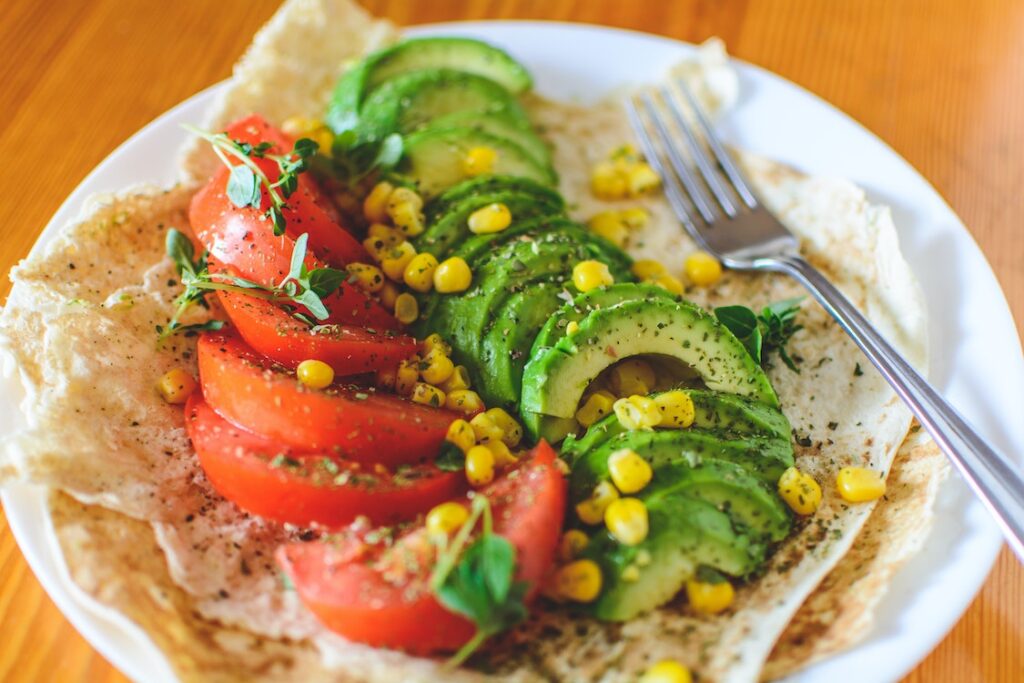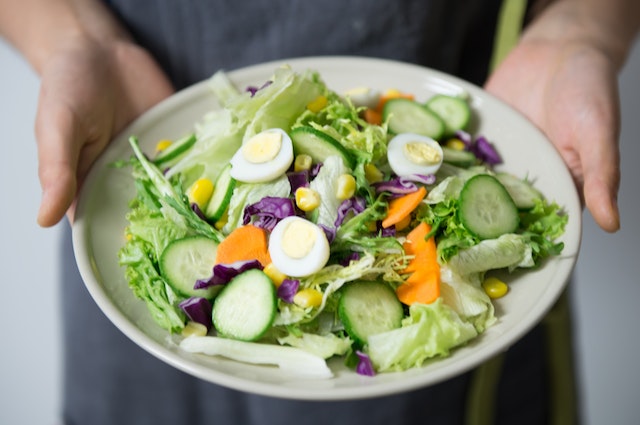
Veganism is an ethical lifestyle which abstains from using all products derived from animals, such as food (such as meat, dairy and eggs); cosmetics; leather or silk products and clothing.
Beginning a vegan lifestyle can be difficult. To stay motivated, watch documentaries that remind you why it is beneficial.
Go Vegan for the Environment
If you want to reduce your environmental footprint dramatically, becoming vegan could be the ideal way. According to research conducted at Oxford University, eliminating meat and dairy from your diet could slash greenhouse gas emissions by 75%! In addition, animal agriculture is one of the leading causes of wild habitat destruction in tropical nations – going vegan could help avoid this by decreasing demand for meat while freeing up land that can then be used as natural wildlife habitats.
Veganism is not only eco-friendly, it is also good for you. Plant-based foods provide essential vitamins and nutrients that will leave you feeling full without the harmful fats and added sugars often found in meat and dairy products. Furthermore, switching to veganism may even help you slim down while enjoying all your favorite meals!
Switching to a vegan diet may seem daunting at first, but don’t let the initial learning curve discourage you. Start slowly replacing animal-based foods on your plate with more sustainable options such as vegetables, fruits, nuts, beans and grains; once comfortable with this approach begin experimenting with new recipes – invest in cookbooks that appeal to you as well as keeping essential staples like rice flour tofu nutritional yeast olive oil agave and oat or nut milk available in your kitchen.
Believe it or not, your food choices have an enormous effect on our planet! An organic vegan diet can help combat global warming while supporting biodiversity on Earth. Conserving our environment and its resources are critical – take small steps now towards becoming more sustainably living by going vegan!
Go Vegan for Your Health

Studies have revealed the numerous health advantages of switching to a plant-based diet. Veganism has been found to provide benefits such as lower cholesterol levels, reduced risks for cardiovascular disease and less chance of high blood pressure or diabetes development. Furthermore, eating plant-based helps protect against certain cancers, including those of the digestive tract as well as breast, ovaries and uterus cancers in women.
Switching to a plant-based diet is also an effective way of quickly altering the composition of your gut bacteria. While traditional American diets encourage the proliferation of disease-promoting bacteria, plant-based eating adds many beneficial microorganisms into your digestive tract resulting in more balanced intestinal microbiomes – benefitting your immunity, metabolism, and overall wellbeing.
Vegan diets may leave some nutrients behind, including calcium, iron, vitamin B12 and omega-3 fatty acids (especially if avoiding fish). Therefore, it’s essential that meals are planned carefully and consider fortified foods or supplements as ways of getting enough of these essential nutrients.
Veganism can be challenging at times, particularly for those new to eating this way. If you find yourself losing motivation or being tempted by non-vegan food, documentaries such as “Forks Over Knives,” “What the Health,” and “Cowspiracy” may help refocus your energy onto what veganism has brought into your life.
Go Vegan for Animals
Millions of animals are slaughtered each year to satisfy people’s desire for meat. As part of this process, they suffer unimaginable levels of cruelty: being caged or penned until infertility ensues, fed hormones to induce weight gain before being mercilessly slaughtered and burned alive afterwards. A vegan diet offers one solution that spares animals this fate.
Vegan lifestyles are also eco-friendly. By cutting pollution caused by animal waste (which contributes to greenhouse gas emissions) and water contamination, as well as ecosystem destruction that threatens numerous species of plants and animals living there, being vegan helps the earth become cleaner. A vegan diet also has been found to decrease deforestation which is one of the main drivers behind global deforestation.
Plant-based diets also benefit our oceans by protecting marine life and regulating climate and water cycles – while acting as natural carbon sinks.
The greatest source of marine plastic pollution is discarded fishing gear made of leather. When caught and died from being caught in its nets, non-target species such as whales dolphins and turtles become victims. Switching to a vegan diet greatly decreases demand for these products thus decreasing animal deaths associated with this industry.
Vegan lifestyles are also animal-friendly when it comes to clothing and beauty products, supporting cruelty-free, organic and sustainable options over products not certified as cruelty-free or tested on animals. Vegans will be aware of their purchasing decisions to avoid those containing animal ingredients such as leather, fur, gelatin honey beeswax and more in their purchases.
Go Vegan for Your Soul
Veganism is a form of whole food diet which excludes all animal products. To that end, many products are seen as being kosher too. Vegan diets have been linked with improved cardiovascular health, increased energy levels, reduced risk of obesity and chronic diseases like heart disease and diabetes and environmental benefits such as reduced carbon emissions. A vegan lifestyle also encourages compassion and sustainability which may reduce environmental footprint.
Others choose veganism for health or environmental reasons; whether to reduce their long-term disease risk, optimize their own wellness, or not fund slaughterhouses and factory farms. No matter the motivation behind their decision to become vegans, becoming one is an incredibly powerful and meaningful act that can have lasting positive repercussions for both planet Earth and its inhabitants.
If you need help getting started, start by watching some of the many helpful documentaries and books available such as Game Changers, What the Health, Cowspiracy or Vegucated. Planning out meals using plant-based ingredients prior to transitioning is also helpful and should make the transition process smoother; finally don’t get discouraged if occasional slip ups occur – most vegans who have been at it long have succumbed!
Go Vegan for Your Relationships
Being vegan is an amazing journey, but dating someone non-vegan can be challenging. Whether you want your partner to join or simply want a more eco-friendly relationship, there are ways you can make this transition simpler for all involved.
Begin by gradually introducing more plant-based foods to your partner, so they become accustomed to their taste. Gradually introduce them to vegan restaurants so they can experience first-hand just how tasty and filling a vegan diet can be.
Make an effort to educate your partner on the merits of veganism through documentaries and reading books together, such as watching documentaries or reading books about it. This may help them appreciate why your choice to become vegetarian matters and could possibly change their opinions on meat consumption altogether.
As forcing someone else into becoming vegan will only cause tension within your relationship, be patient when asking them to go vegan. Instead, take it slowly and find common ground on topics other than food such as beauty products or clothing; one option could be replacing their current skincare products with cruelty-free ones like Buddy Scrub’s Wash & Moisturise Bundle made from natural and organic ingredients like aloe vera gel, coconut milk and shea butter for example.
Your partner could eventually turn vegan and reap its many rewards, including improved feelings about themselves, health issues, environmentalism and animals; money saved on non-vegan products like leather shoes and lipstick that is not cruelty free; healthier eating; saving money by purchasing less animal products like these two items and so much more.
